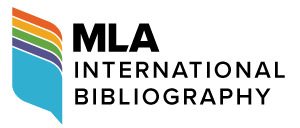Copyright, Open Access and Plagiarism Policies
Open Access*
Alma Máter Student Journal of Research in Linguistics is committed to the policies of free access or Open Access to scientific information that promote the free and unrestricted circulation of academic and cultural publications and research. Thus, readers can access published texts free of charge.
As it reads in Resolution RHCS 1365/2017 of the National University of Córdoba (UNC), "free public access to scientific-technological production contributes to the advancement of science, to productive innovation, to associativity and collaborative culture, to the increase of the cultural, educational, social and economic heritage of our country and to the advancement of knowledge" (p. 112). From Alma Mater, we are confident that Open Access policies contribute to the democratization of knowledge, to guarantee instances of collective participation, and to increase the visibility of UNC´'s educational, scientific and cultural production.
Alma Mater does not charge any kind of fee to authors for the publication of texts.
Copyright and CC License
Publication in Alma Mater does not impede subsequent publication or adaptation in other spaces. The authors grant Alma Máter, student journal on linguistic research (ISSN: 2718-8477) permission to publish and disseminate their texts, retaining their copyright on the text and guaranteeing the journal the right of first publication of their work. The texts are protected by a Creative Commons Attribution/NonCommercial Attribution-NonCommercial 4.0 International Public License - CC BY-NC 4.0. This license authorizes third parties to use what is published, provided that proper acknowledgment is given; the authorship of the work is mentioned and the material is not used for commercial purposes.
The publication in Alma Mater grants the non-exclusive assignment of the authors' economic rights in favor of the Editorial Committee and the Association of Linguistics Students of the FFyH, allowing the reuse, after its edition (post-print), under the aforementioned license. In addition, the assignment of circulation rights of the authors grants the editors authorization to deposit the works in the institutional repositories of the Universidad Nacional de Córdoba: Portal de Revistas de la Universidad Nacional de Córdoba and disseminated through social networks and databases that the Editorial Committee deems appropriate for indexing.
Likewise, Alma Mater promotes self-archiving by authors, who are encouraged to upload the final version of their articles once published, in virtual media such as personal websites, institutional repositories, blogs or social networks, as long as their publication in this space is acknowledged and mentioned.
The authors assume credit for the publication and responsibility for the published content. Errata noted in the publication will be published in the next issue and, when necessary, the retraction of the authors regarding the content of their texts will be accepted.
Code of Ethics and Plagiarism Policy
The journal subscribes to the code of ethics of the Committee on Publication Ethics (COPE). Misconduct will be sanctioned. The persons involved should issue clarifications, apologies and corrections if necessary.
To ensure the development of a fair, free and accessible academic space that complies with the maintenance of ethical standards and academic conduct of the scientific community, we request that all persons involved (authors, reviewers, editors) contribute to the detection of instances of plagiarism. To this end, we will use plagiarism detection platforms such as Plagiarism Checker.
Although Alma Máter invites you to submit papers that have been previously presented in evaluative instances (partial or final exams, for example), the texts must follow the formal and textual guidelines of the discursive genre in which they are included and be original, i.e., of the authorship of those who present them.
The following cases are considered plagiarism:
-The direct copying of a text or parts of it, ideas, images or data from other sources without the corresponding mention or attribution.
-The use of an idea from another text or author, based on modifications without the corresponding mention or attribution.
-The exclusion of any of the co-authors of a text.
*For the elaboration of this section, we have based ourselves on the guidelines of the journal Recial, the journal Estudios Interlingüísticos and the COPE guidelines.





